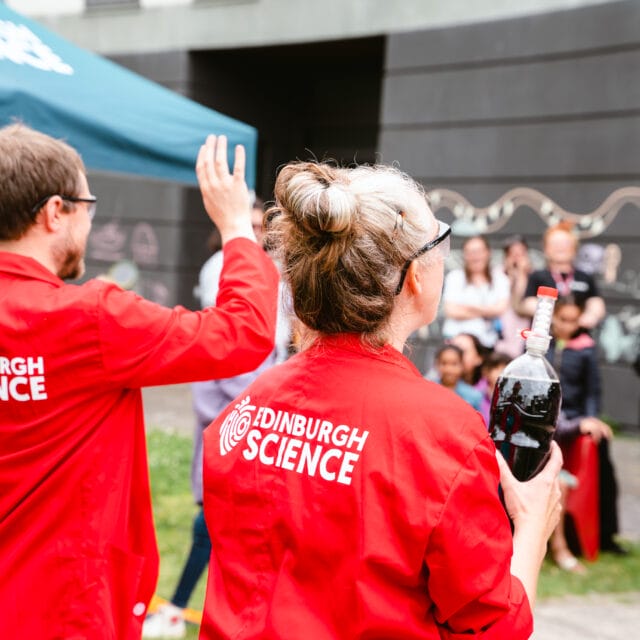As an organisation, we're taking steps to reduce our impact on the planet
Edinburgh Science commits to reducing our emissions in line with 1.5 degrees of global warming from the benchmark of 205,199kg CO₂e measured in 2019–20, our baseline year.
We commit to:
- Decreasing our office and warehouse (scope 1&2 emissions) by 75% by 2030 and reaching net zero by 2040
- By continuing to use renewable energy suppliers and working with our landlord to find a sustainable heating solution
- Reducing our transport emissions from business travel within the UK and other countries by 70% by 2030 by prioritising low carbon travel methods
- By continuing to prioritise public transport and cycling where possible
- By phasing in rented electric vehicles for our touring projects and other business travel as they become available, reaching hopefully a fully electric rented fleet by 2033
- Reducing our flight miles by 33% by 2030
- Reducing our scope 3 footprint* from food, materials and freight by 33% by 2030
- By identifying a more circular approach to materials use, choosing sustainable food providers and using sea cargo over air freight
*Please note that we do not have data on the CO₂e generatated from procurement of food and manufacture of materials. As such these are not included in our 2019–20 baseline. However, we understand that retaining materials in order to use less and following best practice in terms of food sustainability, will be best fort he environment so will strive to do this even though we cannot currently measure the impact of it in terms of a tangible CO2e reduction
A 33% reduction in flight volume has been considered feasible. We have already been seeking contracts which require fewer staff to fly e.g. via international consultancy projects such as the Getty Foundation work and by winning contracts on home soil such as Dreamachine. For more traditional international work we can trial employment of local science communicators in-country and fly a smaller team of Team Leaders and Creative Directors.
There are other areas in which we can reduce staff travel emissions too, by moving forward witha hybrid model allowing continues home working; adopting a no-internal-flights policy for staff and delegates; promoting active, train and bus trave to meetings and seeing EV van rental for transporting materials as this become available.
Employees will regularly be give the option to attend a carbon literacy training course which will help guide sustainable workplace decision making.


